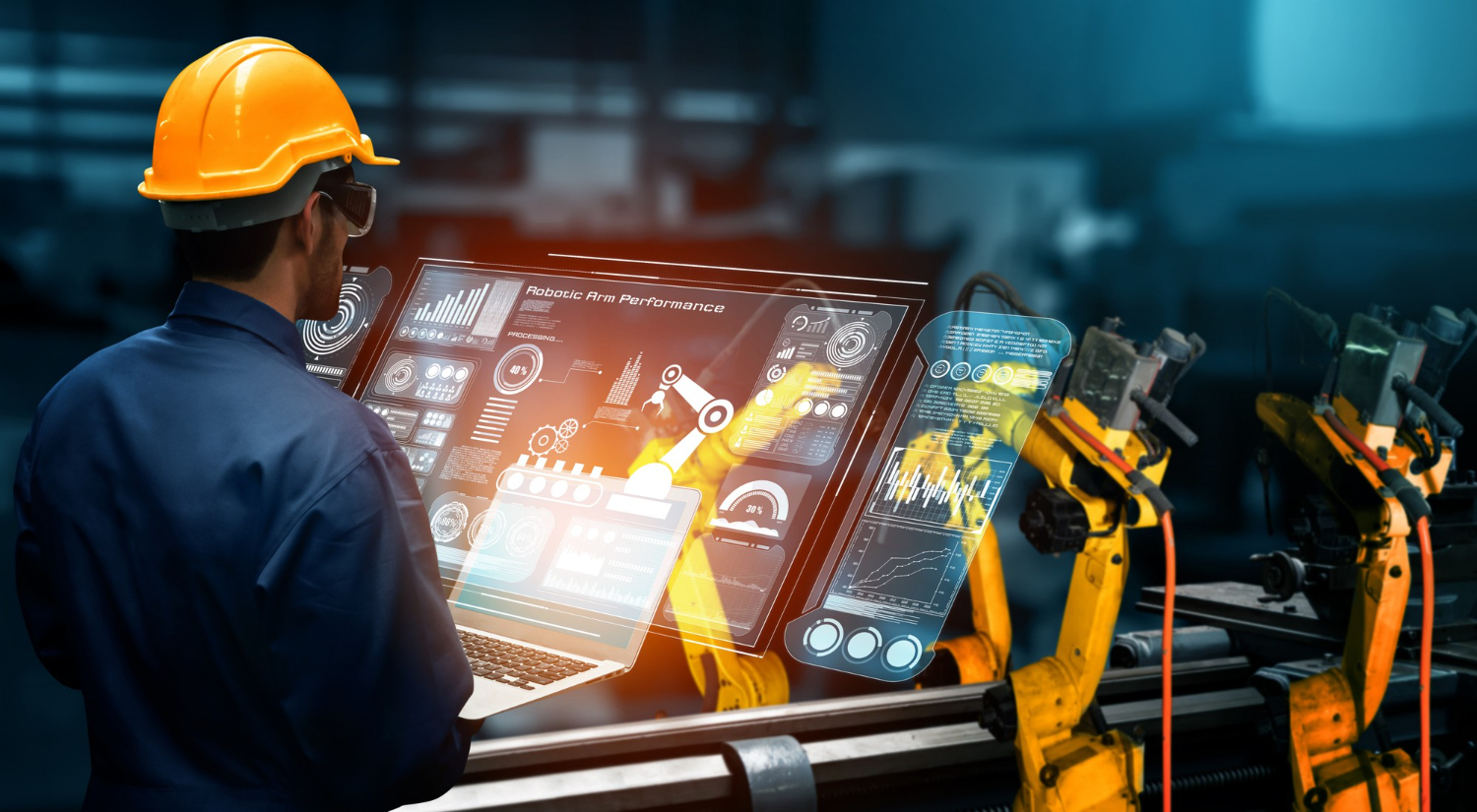
11/03/2022
3+1 technology trends that will define manufacturing’s future
The recent Covid-19 pandemic accelerated significant disruptions in the manufacturing industry; decarbonization, servitization, and digitalization, forced organizations to adapt at a rapid pace while having, to tackle unpredictable demand surges, raw material shortages, and delayed supply chains. At the same time, the ‘New Normal’, has set new rules with remote work, real-time adjustments, and localized industry taking precedence.
With manufacturers starting shifting their focus to ‘Intelligent Industry’ practices, ‘unleashing waves of innovation across their products, their processes, even their entire operation’ to drive growth, here are 4 trends that will redefine modern manufacturing for the years to come:
1. Prioritizing Artificial Intelligence & Automation
During the pandemic, manufacturers turned to flexible solutions with AI capabilities, in order to remotely automate several tasks and gain data-driven insights. Nowadays, with enterprises developing pandemic-proof strategies, these capabilities will continue to redefine the manufacturing industry, allowing them ‘to enhance productivity, forecast demand, and price trends and strengthen quality assurance’.
2. Modernizing manufacturing with IIoT-powered connected technologies
In the light of revamping their digital infrastructures, manufacturers have also started prioritizing industrial IoT applications. These connected technologies rely on IIoT sensors that allow them to access valuable insights for the entire production process and also, enable real-time machine monitoring and maintenance.
3. Creating engaging experiences with customer-centric technologies
More and more manufacturing companies are shifting away from traditional, in-person customer engagement strategies, and are adjusting their omnichannel approaches, to create lasting relationships with their customers throughout the product lifecycle. By integrating customer experience optimization technologies, manufacturers can gain valuable insights that will help them drive customer loyalty and revenue in the long term.
4. Taking advantage of scenario planning and onboarding tools
Apart from enhancing their operational and customer engagement strategies, manufacturers are also improving the tech offerings for internal stakeholders. For example, by using scenario planning tools with AI capabilities they can overcome, or even avoid, hindrances more quickly and efficiently.
Furthermore, onboarding and immersive training tools can ‘help foster a positive employee experience and accelerate seamless digital workplaces’, while at the same time, driving productivity and efficiency.